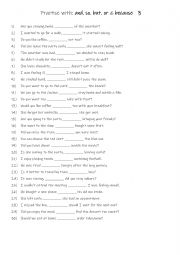
|
A1+- A2 Practise with and, so, but, or & because 3
First, students need to familiarise themselves with the 5 linkers and their usage. Then they read the sentences to see which one is needed to complete the gap-fill. Each conjunction is used 6 times! Answers on page 2.
Level: elementary
Age: 8-100
Type:
Downloads: 111
|
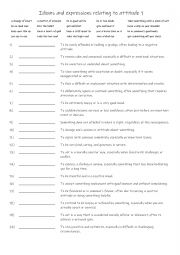
|
B1+-C1 Idioms and expressions relating to attitude 1
First, students need to familiarise themselves with the 20 idioms and expressions and their meanings. Then they read the definitions to see which one is being described and write that word in the space provided Answers on page 2.
Level: intermediate
Age: 12-100
Type:
Downloads: 111
|
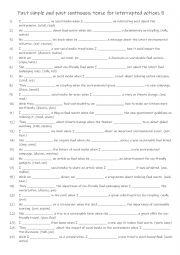
|
A1+-A2 Past simple and past continuous tense for interrupted actions 4
Understanding how to use these tenses together enables you to narrate stories or describe situations more naturally and accurately. First, students need to familiarise themselves with the 2 tenses and their usage. Then they read the sentences to see which one is needed to complete the sentences in a natural way. Answers on page 2
Level: elementary
Age: 8-100
Type:
Downloads: 111
|
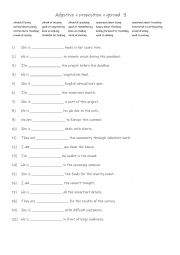
|
Adjective + preposition + gerund 3
Learning adjective + preposition + gerund is essential for natural and fluent English. These structures are common in everyday speech, writing, and exams. They help express ideas accurately, but since prepositions don�t always follow logical rules, mastering them prevents common mistakes and improves overall communication.
Level: intermediate
Age: 10-100
Type:
Downloads: 111
|
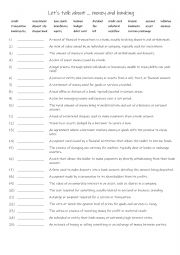
|
B1-B2 Let�s talk about ... money and banking
First, students need to familiarise themselves with the 25 words and their meanings Then they read the definitions to see which one is being described and write that word in the space provided. Answers on page 2.
Level: intermediate
Age: 12-100
Type:
Downloads: 111
|
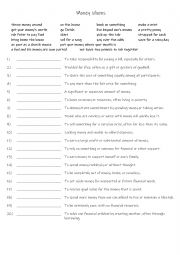
|
B1+-C1 Money idioms
First, students need to familiarise themselves with the 20 idioms and expressions and their meanings. Then they read the definitions to see which one is being described and write that word in the space provided Answers on page 2.
Level: intermediate
Age: 12-100
Type:
Downloads: 111
|
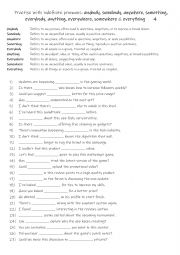
|
A2-B1 Practise with indefinite pronouns anybody, somebody, anywhere, something, everybody, anything, everywhere, somewhere & everything 4
First, students need to familiarise themselves with the 9 indefinite pronouns and their meanings and use. Then they read the sentences to work out which one is needed to complete the gap-fill. Each word is used 3 times! Answers on page 2
Level: elementary
Age: 8-100
Type:
Downloads: 111
|
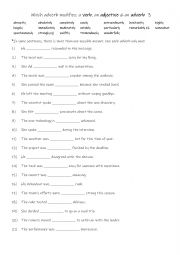
|
Which adverb modifies a verb, an adjective & an adverb 3
First, students need to familiarise themselves with the 21 adverbs and their meanings. Then they read the sentences to see which one is required to complete the gap-fill. Additionally, recognising whether it modifies a verb, an adjective & an adverb. Each type is modified 8 times! Answers on page 2.
Level: elementary
Age: 10-100
Type:
Downloads: 111
|
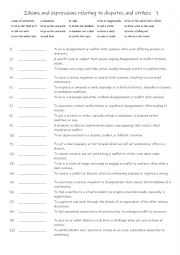
|
B1+-C1 Idioms and expressions relating to disputes and strikes 1
First, students need to familiarise themselves with the 20 idioms and expressions and their meanings. Then they read the definitions to see which one is being described and write that word in the space provided Answers on page 2.
Level: intermediate
Age: 12-100
Type:
Downloads: 111
|
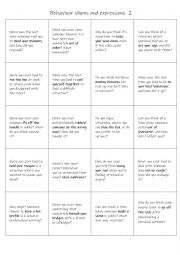
|
B1+-C1 Behaviour idioms and expressions - speaking reinforcement activity 2
This is a speaking reinforcement activity to supplement the other worksheet. Students working in pairs or small groups can either ask each other the questions or answer the question themselves.
Level: intermediate
Age: 12-100
Type:
Downloads: 111
|












